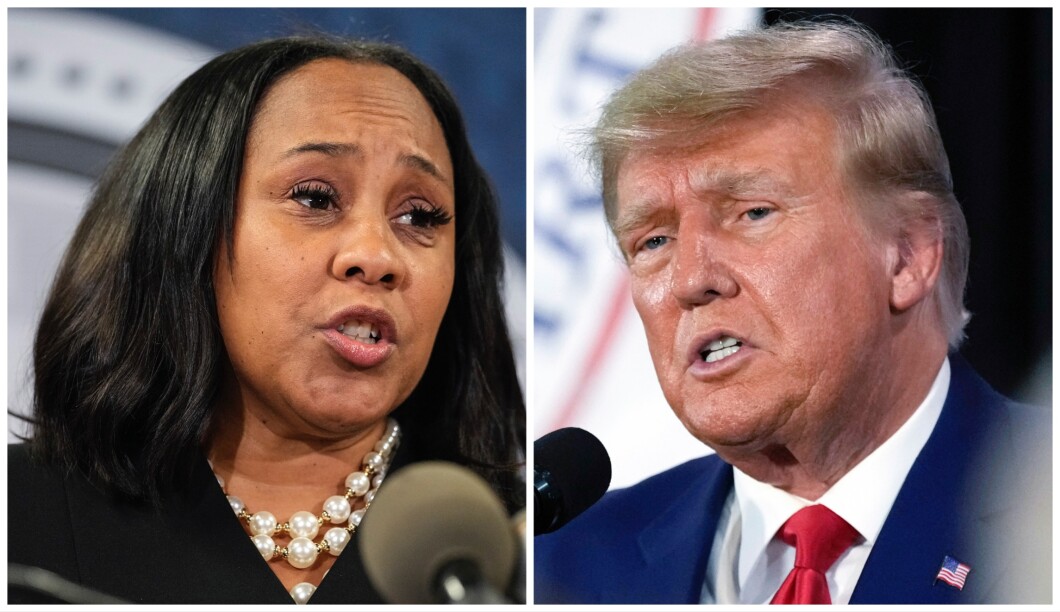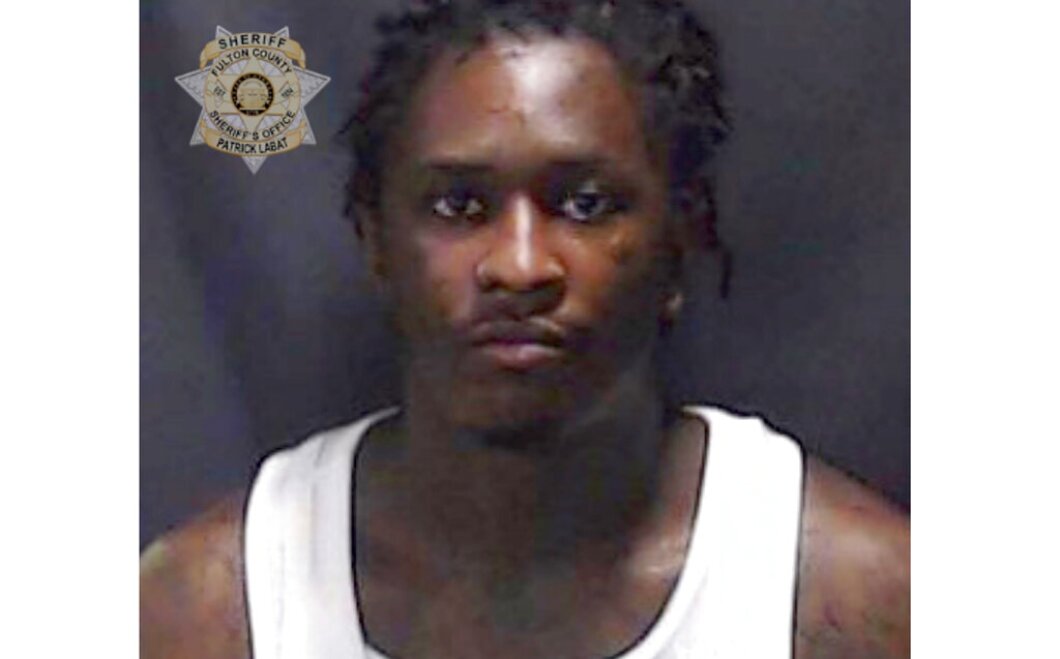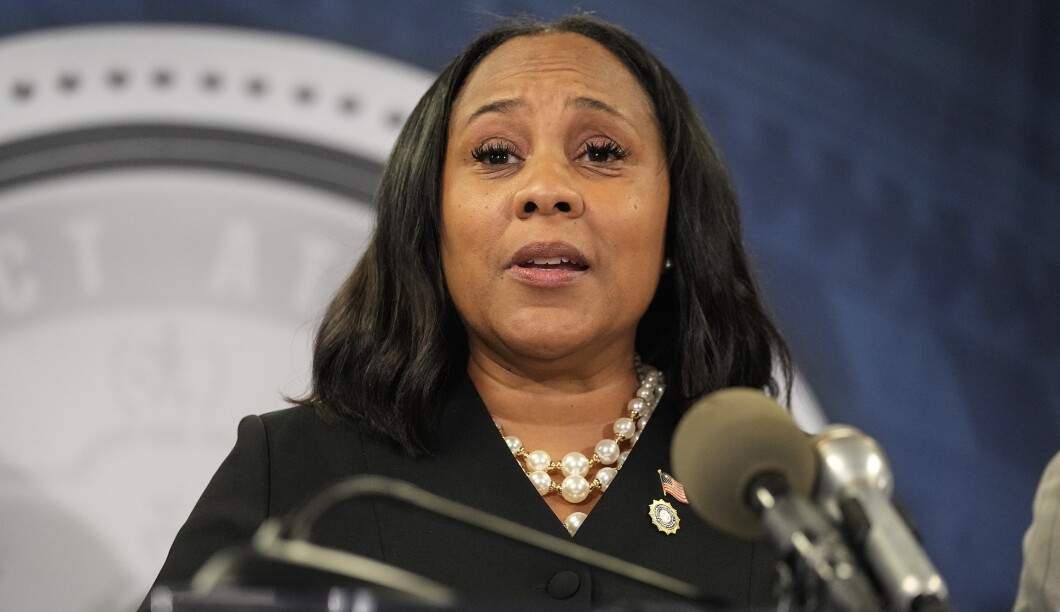
Fulton County District Attorney Fani Willis wants to bring former President Donald Trump and his 18 associates to trial by March 4, 2024, according to a Wednesday filing, despite multiple legal experts who say the proposed timetables are far too ambitious.
The Washington Examiner spoke to multiple legal experts who expressed doubts that Willis can get her case before an Atlanta-based jury within the short time period given the broad nature of the felony criminal charges facing Trump and his allies in the Peach State. Trump, including his former chief of staff Mark Meadows, former personal attorney Rudy Giuliani, and 16 others were named in a sweeping 41-count racketeering indictment related to their alleged efforts to subvert the results of the 2020 election.
MANCHIN VOWS ‘UNRELENTING FIGHT’ WITH BIDEN ON INFLATION REDUCTION ACT’S ONE-YEAR ANNIVERSARY

Unlike the two federal criminal cases facing Trump, he cannot be pardoned, and if convicted, there is a mandatory five-year minimum sentence. “It is the most dangerous case, but it’s also the weakest case,” Trump’s first impeachment attorney Alan Dershowitz told the Washington Examiner.
In response to whether he believes the trial will take place before Election Day in 2024, Dershowitz said Willis “is lying” about her recommendations to begin the trial roughly six months from now.
“I will bet anyone any amount of money that a fair trial could not be conducted within six, eight, or 10 months. The prosecutor was being untruthful when she claimed she will try to bring 19 defendants to trial together within six months. She knows that’s impossible,” Dershowitz said, adding it’s “not a good look.”
So long as Trump remains in state court, the presiding judge in the case, Superior Court Judge Scott McAfee, will be the ultimate decision maker on a trial schedule once attorneys for the defendants submit filings for their desired schedule. The current start date is slated one day before the Super Tuesday primary contests, an important milestone in Trump’s pursuit of the Republican primary nomination.
McAfee will also find himself competing for time with other judges setting court dates during an election cycle in which the leading candidate is battling four criminal cases in different courtrooms across the nation.
Another hurdle for Willis’s timetables is what was described to the Washington Examiner as a “legal traffic jam” in Georgia’s largest county, according to criminal defense attorney Jeff Brickman, a former federal prosecutor in the Atlanta area who told the Washington Examiner about a “backlog” of cases in the Fulton County court system.
“If you’re in jail in a murder case, waiting to be tried, they’re not going to say, ‘Well, sorry for the inconvenience, but we’ve got this sort of big case that was just indicted, so why don’t you just sit tight?'” Brickman said.

Willis is presently using Georgia’s Racketeer Influenced and Corruption Organization Act law in an unrelated case involving the Young Slime Life gang, the case surrounding rapper Young Thug and several of his associates. Jury selection began in the YSL case in January and is ongoing eight months later, and Dershowitz said such procedures in Trump’s case “would take even longer.”
Clark Cunningham, a professor at Georgia State University specializing in constitutional and criminal law, referenced a 2013 RICO case in which Willis worked as the lead prosecutor and took two years before it could eventually make its way to trial.
“In 2013, she was the lead prosecutor in a RICO case in which 35 Atlanta school employees were indicted for falsifying test scores. About 20 of those defendants pled guilty, but the actual jury trial, of 12 remaining defendants, did not take place until 2015,” Cunningham said, noting that any additional delay factors will likely include Trump’s attempt to remove the case to federal court. Meadows became the first defendant to make that request on Tuesday in the North District of Georgia federal court, and a judge ordered an evidentiary hearing for his bid Wednesday evening.
Caren Myers Morrison, a Georgia State professor who also specializes in criminal procedure and jury selection, said while Willis’s recommendation is “aspirational,” it also sends a “strong signal that she does not intend to let things linger.”
CLICK HERE TO READ MORE FROM THE WASHINGTON EXAMINER

Trump is alleged to be at the heart of a criminal conspiracy to attempt to overturn the 2020 election results in Georgia. The criminal actions the RICO charge is built around include making false statements, filing false documents and forgeries, impersonating officials, computer breaches, and attempts to influence witnesses, according to the indictment. He is expected to plead not guilty to all 13 charges.
Willis has given defendants until Aug. 25 at noon to surrender voluntarily.





